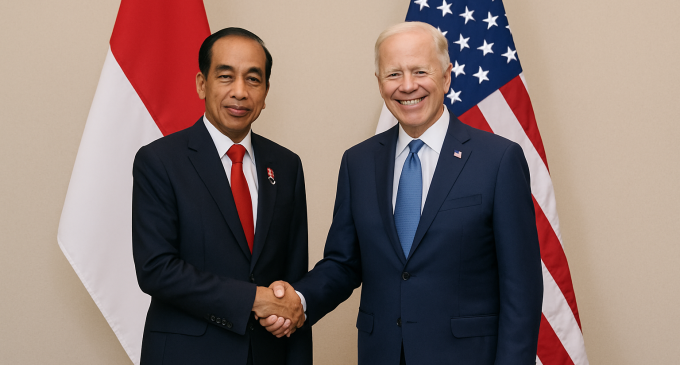
Introduction
On July 24 2025 the Republic of Indonesia and the United States finalized a historic bilateral trade agreement that aims to enhance economic cooperation eliminate long-standing trade barriers and align digital data transfer practices. This expansive accord touches on tariff eliminations digital commerce cross-border data transfers industrial standards and critical mineral trade. It stands as one of the most ambitious trade frameworks signed by Southeast Asia’s largest economy in recent history and signals a pivotal shift in Indonesia’s approach to global trade and regulatory policy.
The Road To Agreement: Context And Driving Forces
The negotiation of this agreement was not a sudden development but the result of years of trade friction combined with mutual interest in strengthening economic ties. For Indonesia the deal represents an opportunity to enhance its attractiveness to foreign investors particularly in technology and manufacturing sectors. For the United States it is a chance to expand market access for American goods and services and secure favorable conditions for U.S.-based digital firms.
Amid global supply chain realignments and increasing emphasis on digital trade the agreement is seen as a timely strategic response by both countries. Rising protectionist sentiment in several global economies combined with increasing competition for technological leadership added urgency to conclude the deal.
In the months leading up to the agreement the United States had signaled potential tariffs on Indonesian imports unless a deal was struck. This external pressure added momentum to the talks and incentivized Indonesian regulators to push through structural reforms that had previously faced resistance.
Key Provisions Of The Trade Deal
Elimination of Tariffs on U.S. Goods
Indonesia agreed to eliminate tariffs on more than ninety nine percent of all United States goods entering its borders. This includes industrial goods agricultural produce vehicles automotive parts pharmaceuticals and electronics. The move positions the United States as one of Indonesia’s most privileged trading partners in terms of tariff access.
For American exporters this represents a significant opportunity to expand market share in a fast-growing economy with a young and consumer-oriented population. Indonesian consumers and businesses are also expected to benefit from lower prices and greater product diversity.
Reduction of U.S. Tariffs on Indonesian Goods
While the U.S. will retain some trade protections the deal reduces its average tariff on Indonesian goods to nineteen percent from the previously proposed thirty-two percent. However certain products with high content from non-market economies may still face tariffs as high as forty percent depending on the final rules of origin and certification agreements.
Abolition of Non-Tariff Barriers
Indonesia has pledged to dismantle a range of non-tariff measures that previously complicated U.S. imports. These included burdensome pre-shipment inspections excessive certification requirements and opaque licensing systems particularly affecting agricultural products and food safety approvals.
Removing these barriers will facilitate smoother and faster entry of U.S. products into Indonesia. It also sends a positive signal to international investors about the government’s commitment to regulatory transparency.
Cross-Border Digital Data Transfers
One of the most groundbreaking elements of the agreement is the inclusion of digital trade rules. Indonesia has formally recognized the United States as a jurisdiction with adequate data protection allowing companies in both countries to transfer personal data across borders without additional approvals.
The agreement also guarantees that Indonesia will not impose tariffs or taxes on digital transmissions such as software downloads cloud services or multimedia streaming. This provision is expected to boost confidence among tech companies looking to invest in Indonesia or offer services to its population.
Adoption of U.S. Standards for Industrial and Consumer Products
Indonesia has committed to recognizing key U.S. standards and certifications for several regulated products including automobiles pharmaceuticals medical devices and food safety. For example the adoption of U.S. federal vehicle safety standards will allow American car manufacturers to sell vehicles in Indonesia without duplicative testing.
Similarly recognizing U.S. pharmaceutical and food safety certifications will accelerate the entry of American health and wellness products into the Indonesian market.
Liberalization of Critical Mineral Trade
The agreement also addresses Indonesia’s role in the global supply chain for critical minerals such as nickel cobalt and rare earth elements. Indonesia agreed to eliminate export restrictions and local content requirements on these minerals when they are sold to the U.S. This is particularly important for the American electric vehicle and semiconductor industries.
Impact Across Key Sectors
Agriculture and Food Products
The removal of tariffs and inspection barriers opens new opportunities for U.S. agricultural exporters. American soybeans wheat poultry dairy and processed foods are expected to gain a strong foothold in the Indonesian market. U.S. producers can now compete more effectively against regional suppliers who previously held cost advantages due to lower import restrictions.
For Indonesian consumers this could lead to more affordable and diverse food options while improving supply chain reliability for the food service and hospitality sectors.
Automotive Industry
By recognizing American vehicle safety standards and removing local licensing restrictions the agreement reduces barriers for U.S. car manufacturers. It also benefits Indonesia’s own auto sector by facilitating technology transfer joint ventures and access to U.S.-made vehicle components.
Local assemblers may benefit from access to American precision parts while consumers will enjoy greater product diversity and competitive pricing.
Technology And Digital Services
U.S. cloud providers software developers and data-driven platforms are among the biggest winners of the digital trade chapter. The agreement removes legal uncertainties surrounding data localization and assures companies that data can be freely transmitted under Indonesian data protection law.
For Indonesia the deal enhances digital ecosystem competitiveness and could spur innovation and investment in its growing tech startup scene. Over time the agreement is expected to deepen the country’s integration into the global digital economy.
Energy and Mining
Indonesia’s commitment to reduce export restrictions on critical minerals like nickel bauxite and rare earths supports U.S. industries heavily reliant on these resources. This includes clean energy defense electronics and battery storage sectors.
For Indonesia the move is likely to attract additional investment in upstream and midstream mineral processing and could lead to the development of more advanced industrial infrastructure.
Projected Economic Gains And Strategic Deals
In the wake of the agreement both countries have announced several accompanying commercial contracts. These include billions of dollars in new deals for U.S. aircraft purchases agricultural commodities and energy projects.
Total projected new market access for U.S. businesses has been estimated at around fifty billion U.S. dollars. These projections include goods exports service provisions and joint ventures in sectors ranging from manufacturing to biotechnology.
Perspectives And Reactions
U.S. Administration and Business Community
U.S. officials hailed the agreement as a victory for fair trade and American competitiveness. The administration emphasized that it would create more opportunities for U.S. farmers manufacturers and tech companies while holding foreign governments accountable to clear rules.
American industry groups particularly in agriculture technology and manufacturing expressed strong support for the agreement. They noted the clarity it provides for long-term planning and the access it offers to a fast-growing Southeast Asian economy.
Indonesian Government and Business Leaders
While Indonesian officials presented the deal as a strategic success many local industries expressed concern over increased foreign competition. Businesses in sectors such as textiles automotive assembly and digital services worry that the removal of tariff protections may put domestic producers at a disadvantage.
However economic planners argue that increased access to U.S. technology and investment will drive long-term productivity gains. By embedding itself deeper into global supply chains Indonesia can accelerate its move toward high-value industrialization.
Regulatory Alignment And Strategic Goals
The trade agreement is also significant for its alignment with international standards and multilateral goals. Indonesia reaffirmed its commitment to the World Trade Organization moratorium on customs duties for electronic transmissions. It has also signaled interest in joining international forums on domestic regulation of services and responsible steel production.
By doing so Indonesia strengthens its position as a credible and cooperative player in global trade governance. This shift reflects a broader national strategy of building bridges between developed and emerging markets and reducing reliance on any single partner.
Challenges And Areas For Further Development
Despite the breakthroughs there are challenges that lie ahead. Effective implementation of the agreement requires updating dozens of national regulations harmonizing certification processes and ensuring compliance across government agencies.
Monitoring and dispute resolution mechanisms will also be essential. Both countries will likely establish bilateral review panels to assess compliance with agreed standards particularly on digital privacy data security and industrial safety norms.
Furthermore many of the more complex technical annexes are still under negotiation. Issues such as rules of origin definitions exceptions to data transfer rules and enforcement of critical mineral clauses will need to be finalized over the coming months.
The Regional And Global Significance
This agreement is being closely watched by other economies in the region. It could set a precedent for other countries negotiating similar deals with the United States or seeking to modernize their digital trade frameworks.
Southeast Asia has become an increasingly important arena for global economic competition especially between the United States and China. With this agreement the United States strengthens its strategic presence in the region while Indonesia gains greater autonomy and negotiating power.
The framework may also influence future reforms within the Association of Southeast Asian Nations particularly regarding digital economy integration and industrial policy convergence.
Looking Ahead
The Indonesia-U.S. trade and digital partnership agreement is not simply a transactional document but a comprehensive roadmap for deeper cooperation. As implementation begins both countries must remain committed to dialogue transparency and adaptive governance.
For Indonesia the deal marks a leap forward in its efforts to modernize its economy and become a key node in global digital and industrial value chains. For the United States it underscores the continued relevance of strategic bilateral engagement in an era of economic multipolarity.
Ultimately this agreement reflects the evolution of trade policy in the twenty-first century—where tariffs still matter but where data flows innovation ecosystems and regulatory alignment increasingly define competitive advantage.
Conclusion
The July 24, 2025 trade and digital agreement between Indonesia and the United States represents a turning point in bilateral economic relations, blending traditional market access reforms with forward-looking digital economy provisions. By eliminating nearly all tariffs on U.S. goods, streamlining regulatory standards, enabling cross-border data flows, and liberalizing critical mineral trade, the deal positions both nations to benefit from expanded cooperation in goods, services, and technology.
For Indonesia, the agreement marks a strategic leap toward global economic integration and modernization. It opens new avenues for foreign investment, accelerates regulatory reform, and signals readiness to participate more actively in high-value global supply chains. At the same time, it challenges domestic industries to become more competitive in the face of increased foreign participation.







There are no comments at the moment, do you want to add one?
Write a comment